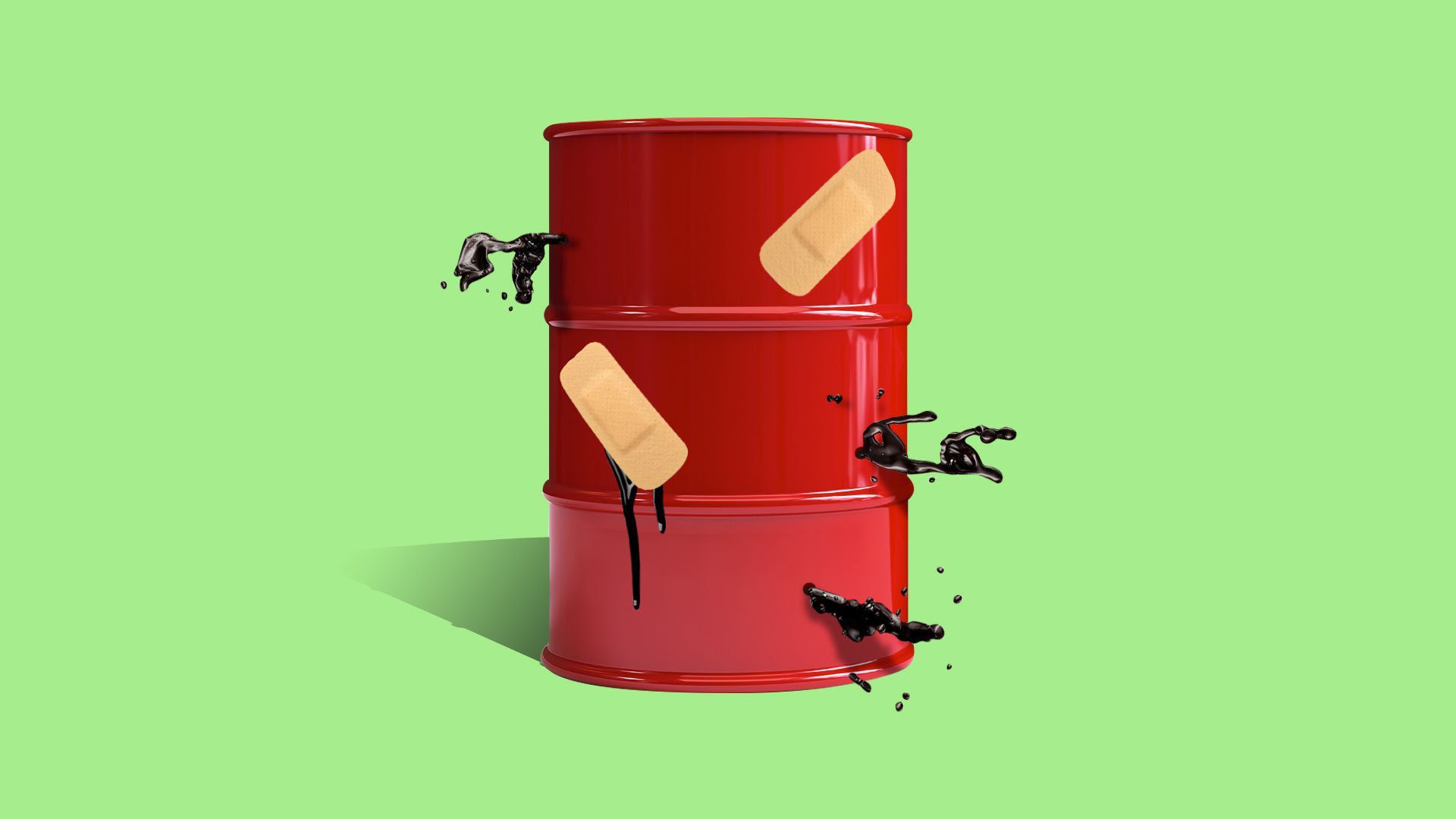Oil's risky recovery and the damage done
Add Axios as your preferred source to
see more of our stories on Google.

Illustration: Aïda Amer/Axios
Oil prices are recovering as producers slash output and demand starts coming back, but analysts warn there's a big asterisk next to the trend: the trajectory of the coronavirus pandemic.
Driving the news: Brent crude is trading around $31.97 this morning compared to its April trough below $20, while prices for the U.S. benchmark WTI have roughly doubled over the last two weeks to around $28.62.
Where it stands: "Market forces have aligned producers around the world to support fundamentals, and demand is increasingly showing signs of having troughed," Barclays says in a note this morning.
- But it adds: "Prices are likely to remain under pressure over the very short term, especially amid significant uncertainties regarding the pace of recovery in the broader economy."
Threat level: But prices remain very low, and it will be a long road back as a huge glut is burned off and the global economy remains deeply wounded.
- And here's the thing: The market's recovery could unravel if easing restrictions creates a surge in new infections, analysts warn.
What they're saying: "We believe stocks will be reduced gradually over the next 12 months or so. All bets though hinge upon avoiding a second wave of the coronavirus, which is yet to be seen as countries remove lockdowns around the world," Rystad Energy's Bjørnar Tonhaugen writes in a note this morning.
- Vandana Hari of Vanda Insights tells Bloomberg: “Market sentiment has turned cautiously constructive since the end of April and I expect it to remain as such unless there are major setbacks in terms of infection rates.”
Threat level: A lot of the impact of the collapse is too late to avoid — both for the industry and beyond.
- This year's downturn in oil markets is likely to create a substantial drag on the wider U.S. economy as energy companies slash spending, Dallas Fed economists say in a new analysis.
Why it matters: It shows how the U.S. production boom over the last decade-plus has raised the economic stakes when the industry thrives — or takes a gigantic hit, which is happening now as the sector sheds jobs and cuts spending.
What they found: "The decline in oil and gas capital expenditures will be a major drag on U.S. business fixed investment in second quarter 2020," the report states, noting this investment is an important part of GDP.
- "We estimate that investment declines in the energy sector alone may lead to a 6.1-percentage-point decline in U.S. fixed investment in the second quarter," it finds (emphasis added).
Go deeper: How oil's collapse will weigh on the U.S. economy
